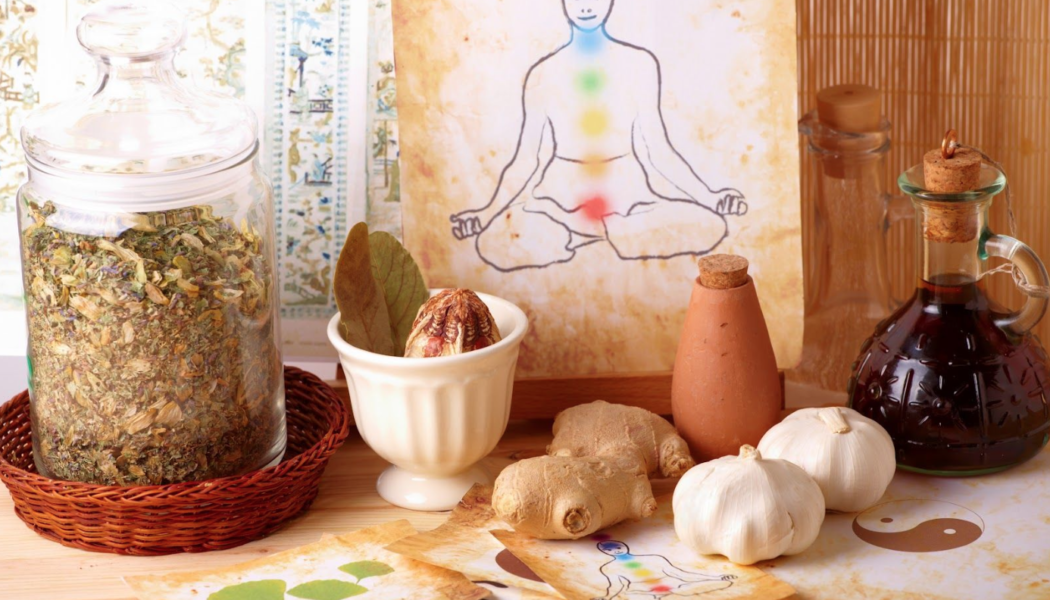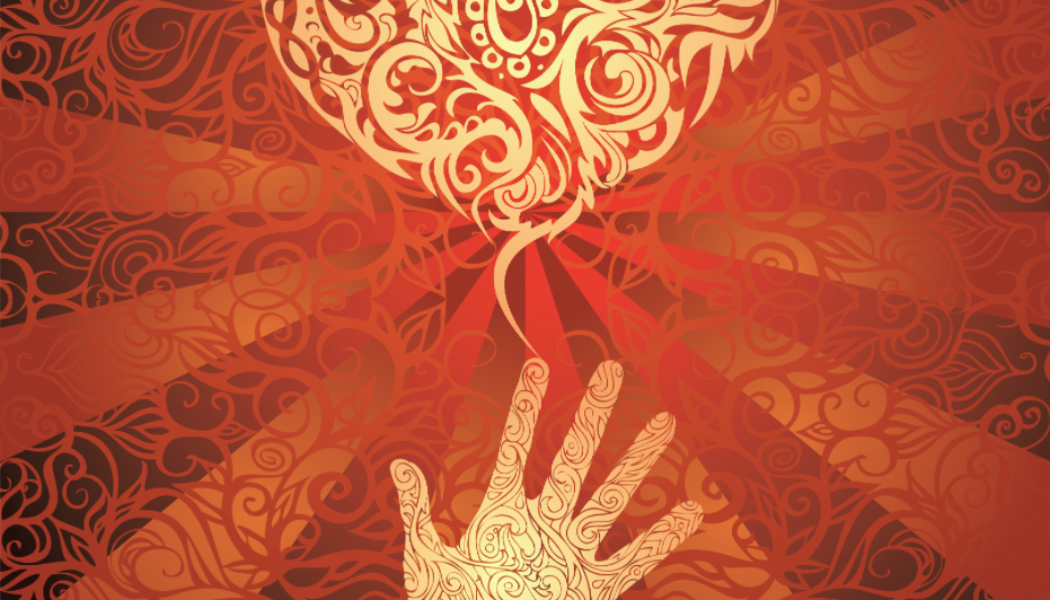Month: November 2015
The Ayurvedic Consultation
The Ayurvedic Consultation Health is not simply the absence of disease, but is a state of balance that provides for wellbeing, clarity, and joy. Ayurveda – “The Science Of Life” is considered to be the longest continuously practiced system of traditional medicine and emphasizes on creating balance in all areas of life. Not only does Ayurveda examine the body but inquires further about daily diet, lifestyle, relationships, stress, and overall sense of well-being. THE INITIAL CONSULTATION The initial consultation involves a thorough examination allowing the consultant to identify key symptoms and potential causes of imbalance and to eventually determine suitable food and lifestyle recommendations. Observation [Darshan]: An Ayurvedic practitioner is able to evaluate the state of ...
Ayurveda Daily Rhythms
Ayurveda Daily Rhythms According to Ayurveda, a person is a miniature reflection of nature and the rhythm of life is governed by cycles. In order to maintain health and balance we need to learn how to live in accordance to nature’s daily cycle. Ayurveda speaks about biological time as a function of three doshas [vata–pitta–kapha] in relation to chronological time with each dosha being more active at a particular time of day and night. “Early to bed and early to rise makes a man healthy, wealthy, and wise.” – Benjamin Franklin Daily Rhythms: Early Morning [2 am – 6 am] – Vata Time Morning [6 am – 10 am] – Kapha Time Mid-day [10 am – 2 pm] – Pitta Time Afternoon [2 pm – 6 pm] – Vata Time Evening [6 pm -10 ...
Want Good Karma? Then Do Your Dharma.
Want Good Karma? Then Do Your Dharma. According to Ayurveda, every human being has four basic responsibilities. The four responsibilities are dharma [righteous actions], artha [wealth], kama [desire] and moksha [liberation]. Ultimately, these four responsibilities provides the seeker the highest ideal of eternal bliss while enjoying the worldly joys. Prithivim dharmana dhritam – Mahabharata “This world is upheld by dharma.” The Four Basic Responsibilities Dharma is the first responsibility. Dharma is the path of righteousness and living according to the codes of conduct – living truth. Want good karma? Then do good dharma. Artha is the next responsibility which is to acquire life’s basic needs – food, shelter, and clothing. One meaning of artha is mone...
Ayurveda – Healthy Skin Care
AYURVEDA – HEALTHY SKIN CARE Skin is a remarkable organ. In fact, skin is the human body’s largest organ, which regenerates itself by shedding off dead skin and regenerating a new layer approximately every 28 days. More importantly, skin can reveal information about our overall state of health. For example, rash, hives, and itching may reveal an allergic response, a bacterial or viral skin infection, or even an underlying autoimmune condition. Likewise, a mole may be a sign of skin cancer. In essence, the skin reveals what’s happening within. Diet In general, ayurveda recommends healthy, whole foods, consisting mainly of a vegetarian diet for all types of constitutions. Foods which are fatty, fried, refined, and processed are more likely to cause skin conditions – therefore avo...
Ayurveda – Do Emotions Matter?
Ayurveda – Do Emotions Matter? The ancient wisdom of Ayurveda aims to promote health, happiness, and longevity by taking into consideration the trinity – body, mind, and spirit. In fact, Ayurveda explains further that only when the influences of the body, mind, and senses are balanced and one experiences the sense of happiness is one thought to be in good health. Let us now explore the realm of emotions. e·mo·tion [noun] instinctive or intuitive feeling as distinguished from reasoning or knowledge. Storehouse Of Emotions Many ancient cultures have described feelings and emotions to be a refined and subtle aspect of the intellect; intellect being the act of discrimination or discernment. The science of Ayurveda explains that the connective tissue of the body serves as a ...
Ayurveda – Healing Through The Doors Of Perception
Healing Through The Doors Of Perception According to the ancient wisdom of Ayurveda, the two governing principles of creation are “Purusha” [i..e. Awareness] and “Prakruti” [i.e. Creative Dynamism]. The ancient teachings explain that this model of creation exists as a whole – the universe and the individual being the same separated only by degree. In essence, all creation is one. “As a child is born in its mother’s womb, so the universe is born within the womb of Prakruti, the divine mother.” – Dr. Vasant Lad, Ayurvedic Physician Purusha – choiceless passive awareness; bliss; pure being Prakruti – creative intelligence, potentiality, dynamism What Is Ayurveda? … “Ayurveda Is The Science Of Right Living.” The Doors Of Perceptions The ancien...
Awareness – The Mirror Of Life
Awareness – The Mirror Of Life The mind can either be a beautiful servant or a dangerous master [Osho]. It’s fascinating that in a world of change, one of life’s greatest challenges is simply to sit still and to do absolutely nothing. Ayurveda – ‘The Science Of Life’, talks a great deal about meditation and cultivating a sense of moment-to-moment awareness. mind [noun] a beautiful servant, a dangerous master. “The Troubled Mind” According to the wisdom of Ayurveda, the mind is present throughout the body permeating every cell and that every cell of the body is the center of awareness. Likewise, “Prana” – ‘the vital life force’, governs all communication of the body and mental confusion arises due to repressed t...
Ayurvedic Recipe – Acorn Squash Delight
Ayurvedic Recipe – Acorn Squash Delight Ayurveda explains a concept of “like increases like” – which means the increased cold quality of autumn and winter for example will also increase the cold quality within; hence the tendency to catch a “cold” during this time of year. Therefore, in order to remain balanced during the season we should consider nourishing warm meals. No better reason to enjoy this delicious Acorn Squash Recipe Seasonal Considerations: – eat warming, soothing, and easily digestible meals – eat foods which are primarily sweet, sour and salty in taste – drink warming herbal teas such as ginger, cinnamon and cardamom tea – keep warm and stay out of strong winds – do regular yoga, meditation, and pranayama breathing exercises “Acorn Squash Delight” I...
Marma Therapy – An Ancient Healing Science Of Ayurveda
Marma Therapy – An Ancient Healing Science Of Ayurveda The word “Marma” literally means a tender full vital point, which is a conjugation of muscle, nerve, joint, bone, tendon, artery and vein either in combination of two, three etc., or all the above structures. The father of Surgery – Sushruthacharya, defines Marma as “Marayanthi ithi marma” – which means, that certain vital anatomical locations in the body, when injured shall become painful and cause malfunctioning of the local organs or even cause sudden death (marayanthi) of the individual. “Vital Life Force” The actions of Marma are controlled by the Pranic Vayu (cosmic energy principle in human body). This Prana Vayu is essential to maintain the life or longevity of a person. Sushruthacharya in his tr...
Ayurveda: Honey – The Natural Healer
The ancients have long considered honey as one of nature’s most remarkable gifts to mankind. Not only is honey considered a sweetener but instead is revered as a natural product with high nutritional and medicinal value. Honey contains sugars like fructose, glucose, maltose along with proteins, fats, minerals, enzymes and amino acids. “It promotes the healing process.” The Natural Healer… According to Charaka – a prolific author of the classical texts of Ayurveda, honey is one of those ingredients which can be taken on a daily basis. These classical texts go on to state that all the organs in the body respond favorably when honey is eaten as indicated. For example, honey is thought to possess a special quality called “yogavahi” which allows honey to penetrate into the ...
Nourishing The Body, Mind, & Soul – An Ayurvedic Perspective
Nourishing The Body, Mind, & Soul Ayurveda is considered the world’s oldest and most complete system of natural healing. It’s said that the knowledge of Ayurveda is eternal and is revealed in order to help relieve the suffering of humanity. Perhaps the most universal aspect of Ayurveda is to establish balance, peace of mind, and happiness. “The natural force within each of us is that perfect healer of all.” – Hippocrates According to the classic texts, three aspects of the mind include: Dhi, the ability to learn and acquire knowledge Dhriti, the ability to process and retain information Smriti, the ability to recall, memory Recalling Our True Nature In nearly all ancient cultures, nature has often been considered the greatest healer. Interestingly, in Ayurveda “praj...
Ayurveda – The Movement Of Vata Dosha
Ayurveda – The Movement Of Vata Dosha Ayurveda is the science of life. The science of Ayurveda explains that the human body is a replica of the vast external universe recognizing each individual to be an integral part of the entire cosmos. A unique aspect of Ayurveda is the explanation of three doshas called vata, pitta, and kapha. We can think of these three doshas as the guiding principles that keep all our bodily functions balanced and healthy. Not only do the doshas govern our bodily functions but from a more truer perspective – they are the governing principles of nature. For now, we shall consider vata dosha. “That which moves things.” Vata Dosha The concept of vata originates from the Sanskrit word “vyv” [vaya] which implies ‘that which moves things’. Eventually, vata b...
- 1
- 2























